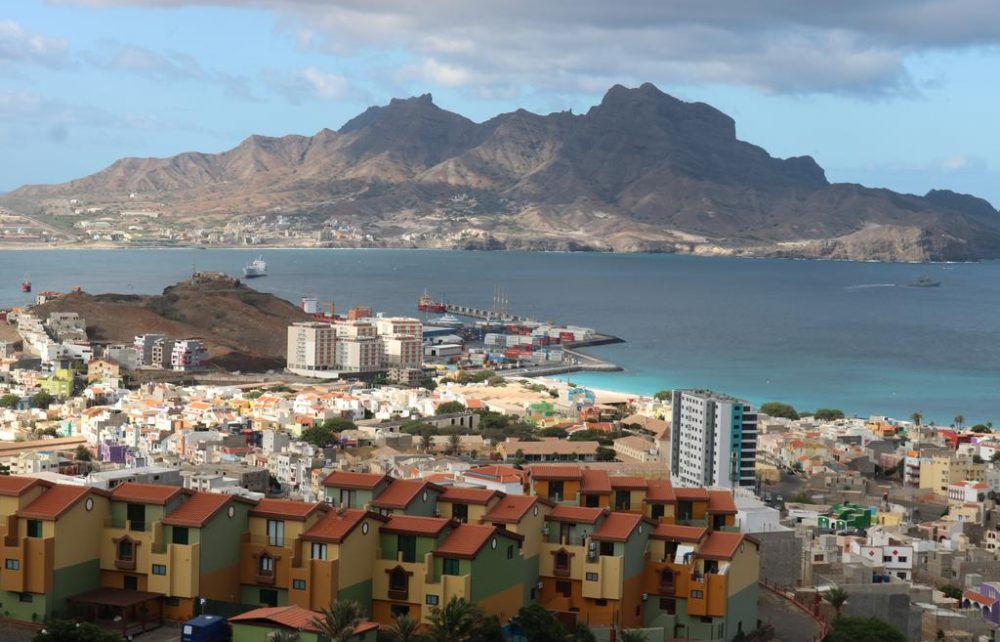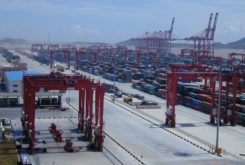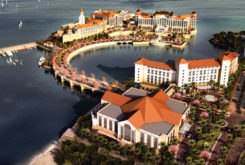The Cape Verdean government’s law creating the Special Maritime Economic Zone on São Vincente (ZEEMSV) has passed through parliament and the project, supported by China, is expected to begin implementation soon. To attract private investors to the project, one of the largest the archipelago has ever seen, the government will be granting financial incentives.
The law, approved this month in the National Assembly, provides for the creation of special state incentives for private investments in excess of CVE 275 million (US$2.73 million) to be carried out in the future ZEEMSV, which provides for three phases until its conclusion in 2035.
The special incentives to be given take into account the amount of the investment, the social and economic impact, the creation of jobs, as well as their relevance for the implementation of the ZEEMSV.
According to the law, investments below that value may also be eligible for the purposes of granting incentives, in the case of projects considered structuring for the project’s implementation.
By 2035, the government plans to transform São Vicente into a maritime logistics platform in the central Atlantic Ocean region, with international scale and connections, for the transhipment of cargo and containers, processing, marketing and maritime distribution of products.
The development of ports, fisheries, tourism, the repair and shipbuilding industry and renewable energies are defined as strategic sectors of the ZEEMSV. As an addition to this activity, the sectors of energy, water, communications and transport, environment, education, health and finance are also identified.
The framework law creates a legal regime with tax, customs and labour benefits, which give substance to the specifics of this law that creates special zones.
In addition to the creation of the ZEEM on São Vicente, the document defines the creation of Integrated Development Zones on the neighbouring islands of Santo Antão, São Nicolau and Santa Luzia, with a view to exploring the complementarities between these islands and São Vicente, and the integrated and coordinated development of the four islands, according each one’s capacities.
Speaking for the MpD governing party during the law’s voting in the National Assembly, member of parliament João Gomes said that the project is strategic, aiming to “harness the sea and the geographical location of Cabo Verde for the development of an integrated maritime economy, capable of creating a chain of industries and services linked to the sea.”
This project, he continued, has the ability to transform the country into a maritime and logistics platform in the Middle Atlantic, and in the medium and long term, transform São Vicente “into a modern, international island” at the service of the maritime economy, capable of leveraging the development of the northern region and the whole country.
The law also had the approval of the opposition parties, PAICV and UCID.
UCID leader António Monteiro, however, tempered his own optimism with a reminder of the difficulty in implementing such a massive project.
“We are talking about an astronomical investment, which to start involves more than US$2 billion dollars to build a deepwater port, build a shipyard, transfer all oil sectors and infrastructures for that area, fish canning factories, in short, large investments,” he pointed out.
The approval, he added, attributes enormous responsibility to the government and the 2021 State Budget should include a significant amount of funding for the project’s launch.
The naming of new ministers in charge of the project is expected to bring new momentum into its development.
The new minister of Maritime Economy, Paulo Veiga, previously secretary of state of this portfolio, took office in January alongside the new minister of Tourism and Transport, economist Carlos Santos. Until now, both ministries were within the portfolio of José Gonçalves, who unexpectedly resigned his post last November.
Gonçalves cited personal reasons for his resignation, describing a sense of “personal duty accomplished, mission accomplished” at his successors’ inauguration. According to close sources, however, his continuity has often been called into question over the past few years, due to complaints from the private sector regarding the Ministry’s slowness, particularly in approving investment projects.
The flagship project of the Ministry of Maritime Economy, itself created in 2018, the ZEEMSV has seen little progress and Veiga will take charge of its revitalisation.
In his inauguration, Veiga announced that the government is working with an international consultant to launch, during the first semester, the international public tender for the concession of the country’s ports. In what was understood as a departure from Gonçalves, the new minister set the goal of accelerating project implementation.
The previous port concession tender, won by French company Bolloré, was annulled by the government. Portugal-based Grupo Sousa, which recently won the international tender for inter-island transport concessions, has also expressed interest in managing the country’s ports.




